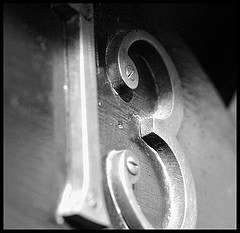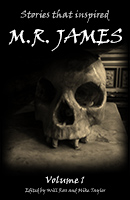 In this episode Mike and Will pack their portmanteaus for a holiday in HELL (well, Denmark actually) as they tackle ‘Number 13’ by M.R. James! Thanks to our reader this week Kirsty Woodfield.
In this episode Mike and Will pack their portmanteaus for a holiday in HELL (well, Denmark actually) as they tackle ‘Number 13’ by M.R. James! Thanks to our reader this week Kirsty Woodfield.
Also in this episode Will and Mike:
- Coin ‘The Jamesian Wallop’
- Tackle the schleswig-holstein question
- Discuss hellish subjects such as alchemy, German sunlounger etiquette, and Toploader
- Inexplicably find something funny about the phrase ‘the Danish area’
Show notes & links:
- Viborg on Wikipedia and Googlemaps.
- ‘The Shadow of the Occupant of Number 13’ by Helen Grant (at Ghosts and Scholars)
- The Significance of Number 13 (at Squidoo)
- ‘Warnings to the Curious’ by S.T. Joshi & Rosemary Pardoe (ed) (at Amazon)
Don’t forget to join us for our next episode when we will be looking at ‘Count Magnus’!
Podcast: Play in new window | Download
Subscribe: RSS








Thank you very much for these,as someone always on the look out for anything jamesian i am enjoying these greatly …looking forward to count magus,Best wishes Lachlan
Thanks Lachlan, glad you are enjoying it! Count Magnus is almost ready to go.
I have just found your website and am looking forward to the first podcast. Regards
‘Number 13’ is one of my very favorite James stories. There’s something extremely charming about it, though I can’t put my finger on it. I particularly like the “dancing in the hotel” poem. It reminds me of the little songs the hobbits are always making up in The Fellowship of the Ring.
I just noticed this comment, totally agree. Nice comparison.
I am extremely happy at your use of the word “bobbins”. It’s not used nearly enough. Well done, young man.
This has got to be the best episode for humour so far. You’re like a university-educated Beavis and Butthead 😉 I, like many others, found your show via Yog-Sothoth and am so glad I did. Keep up the good work chaps !
Another much belated comment – The eccentric Mercer Musuem in Doylestown, Pennsylvania, has a collection of cast-iron stove plates with scenes, Biblical and otherwise, molded in. They do have one depicting Abraham about to sacrifice Isaac; another potrays Absalom hanging from the tree by his hair and impaled with spears, so macabre scenes on stoves were a thing back then.
That is fascinating and brilliant to know!
‘The Bible in Iron’, Mercer’s monograph about the stove plates, with photos, is now online at https://archive.org/details/bibleiniron01merc.
I wonder whether room 13 had existed before the building was converted into a hotel. Perhaps the occupant refuses to give up the room, even though it is no longer there. Hence the varying number of windows, with the building reverting to its previous state. (“Many original features…”) He doesn’t like the idea of research into his life, and tries his best to discourage it.
ps: My last sentence was an attempt to explain why no previous occupant of room 14 had been similarly disturbed (as far as we know). Perhaps Francken was punished by being obliged to stay in his former room forever.
It’s never occurred to me before, but there’s something vaguely reminiscent of Beowulf here: Heorot is Hroðgar’s mead hall, where Beowulf and his men are temporarily housed, which is sort of analogous to an inn where travellers temporarily reside; and the creature’s arm reaching out to grab the visitors is right out of the poem. It struck me just now as an interesting echo of the most famous piece of English literature set in Denmark.
The mad dancing seems to be a feature of stories about demons and fairies, with humans being possessed or forced to dance themselves to madness or death all the way from the middle ages to the Victorian era. The idea of something that should be pleasurable being hijacked to become a method of terrorising or murdering someone is pretty horrifying.
Belatedly discovering these now that I have a job that allows me to listen to headphones all day. Wonderful stuff. What’s the name of the fellow whose alleged actual contract with the devil can be viewed in some museum? The note I scribbled down says “Sylvanius,” but I’m not turning up anything in Google.
I’m having the greatest of times listening to your podcasts and I want to have your babies (not in the Mezzotint sense).
I listened to this story on audiobook and then to your podcast… did I miss something with the ending?
What was the document in the copper box, and how did it relate to Franken or the professor of Hebrew?